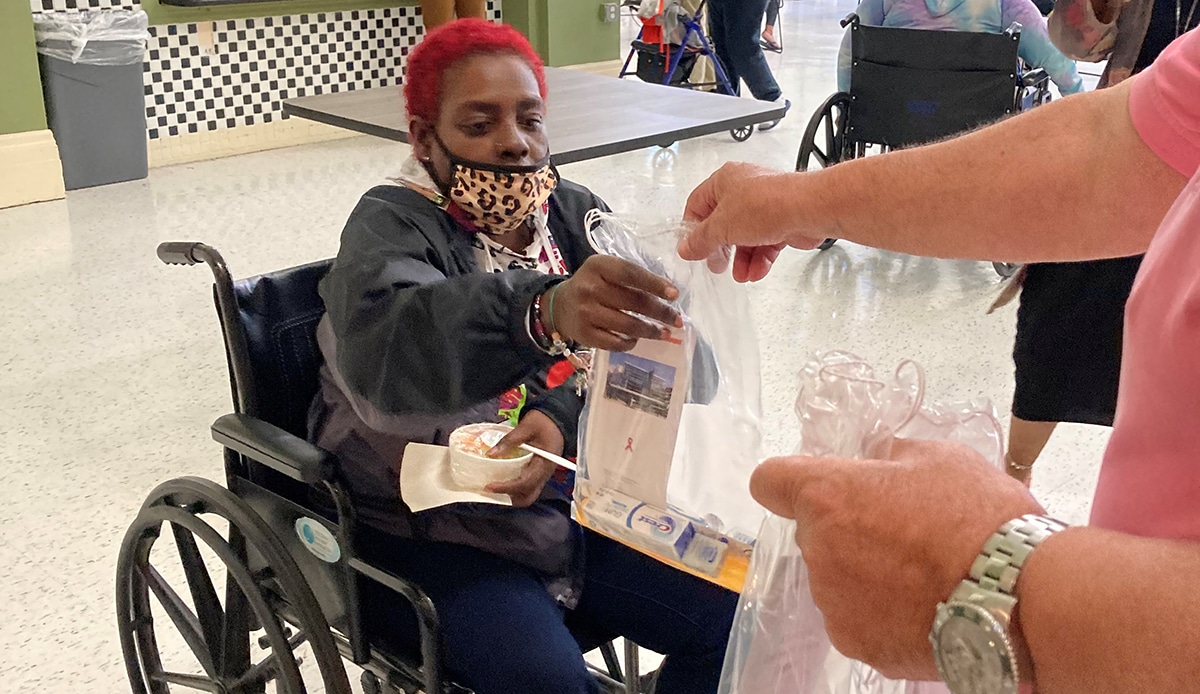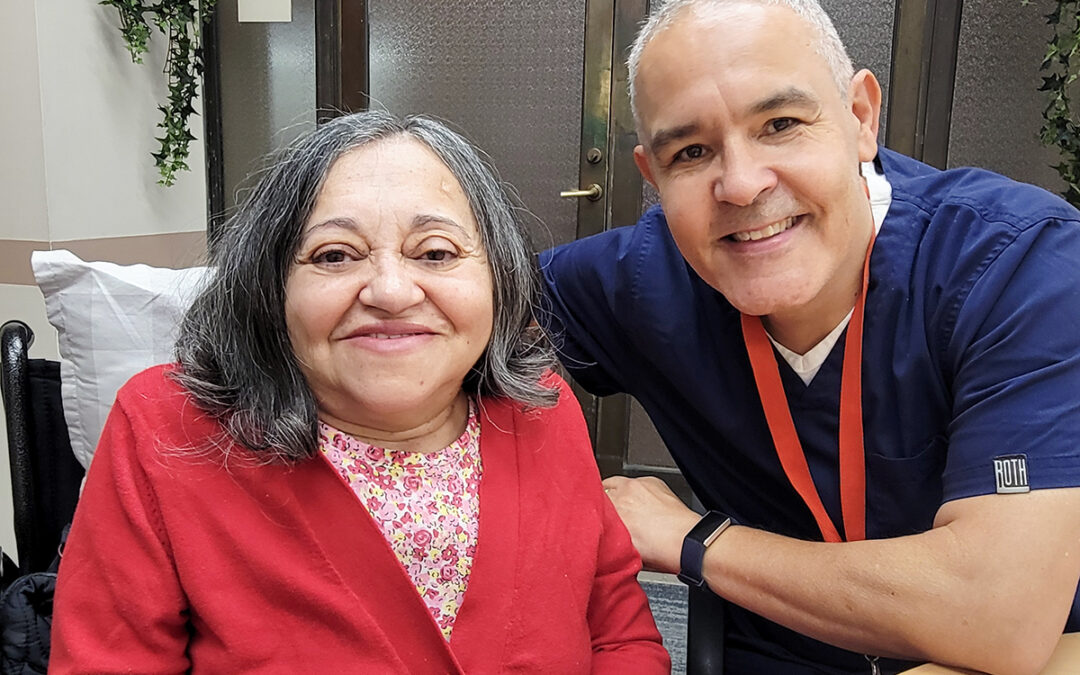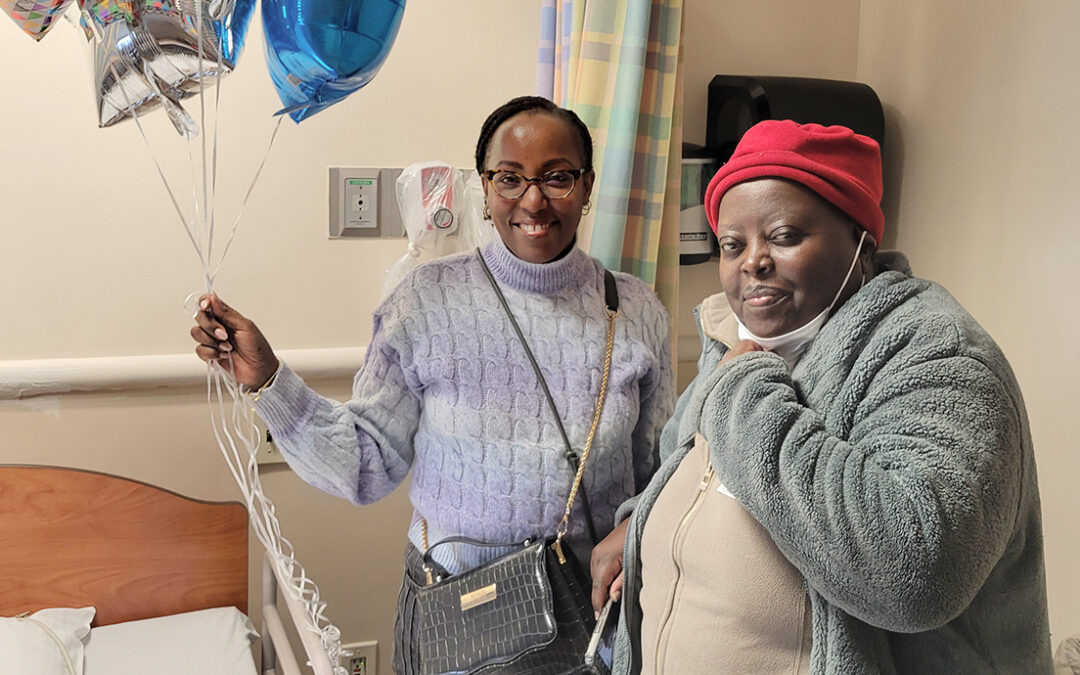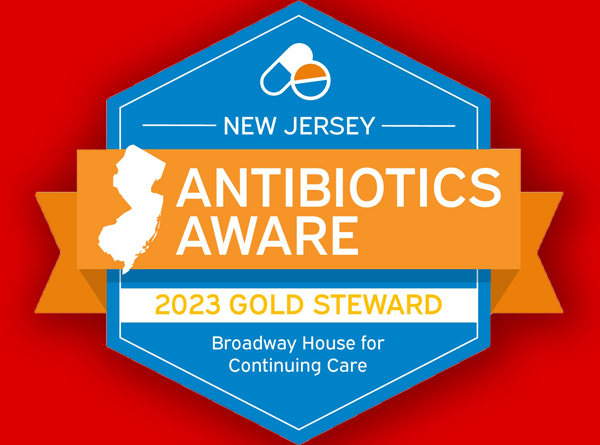Good dental care is critical to overall health, especially for those living with HIV/AIDS. Poor oral health has been linked to many diseases of the mouth, as well as cancers like Kaposi sarcoma and Non-Hodgkins lymphoma. Steven S. Toth, DMD, of the Rutgers School of Dental Medicine recently visited Broadway House for Continuing Care to meet with residents and staff.
Here are some tips from Dr. Toth on how we can all improve our health—and reduce the risk of serious disease—through good oral care:
- Schedule regular dental check-ups every six months.
- Brush your teeth, floss, and clean dentures after meals. Also, use mouthwash regularly.
- Change your toothbrush every other month or after you’ve been sick.
- Check your mouth for any signs of infection or sores.
- Eat healthy: Raw vegetables, cheeses, water, fruit, protein/meat, nuts, certain fruits, and chewing gum with Xylitol (like Trident) help to strengthen teeth and gums.
- Avoid acidic and sugary foods: Soda, juices, many fruits (pineapple, lemons, limes), candy, cakes, bread, rice. Brush immediately after consuming these foods.
For those with HIV/AIDS:
A dental issue can be the first sign of an HIV/AIDS infection. Plus, more than 50% of those living with HIV/AIDS are now over age 50—which increases the risk of dental issues. Funding through the federal Ryan White HIV/AIDS Program is available to assist those with HIV/AIDS to receive regular dental care.





